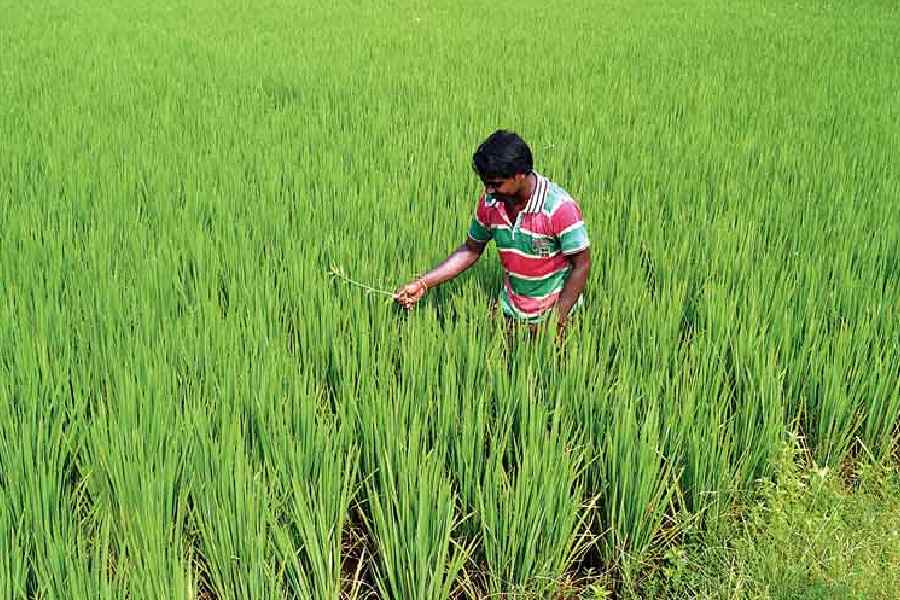The Bengal government is planning to procure paddy directly from at least 25 lakh farmers soon after the harvesting of kharif (monsoon) season as part of a larger plan to woo the farming community before the 2024 Lok Sabha polls.
Around 70 lakh farmers in Bengal cultivate their plots in the kharif season and the harvesting starts in November.
More than 80 per cent of the kharif cultivators are small and marginal farmers (who hold less than one acre of land). They take loans from moneylenders for farming and need to pay back the amounts and reinvest the cash in the ravi (winter) season.
Sources in the food and supplies department said district administrative officials had been asked to ensure the registration of at least 25 lakh farmers before the procurement of the kharif harvest started on November 1.
Selling paddy to the government helps a farmer secure a minimum support price of Rs 2,203 a quintal whereas the rate in the open market hovers between Rs 1,600 and Rs 1,800 a quintal.
“The ruling establishment is keen to extend the benefit to the maximum number of farmers keeping the forthcoming Lok Sabha polls in mind. The BJP had done well in rural areas in the 2019 Lok Sabha polls as well as in the 2021 Assembly elections. So, the ruling establishment is trying to reach out to the maximum number of farmers with the benefit of the MSP before the 2024 general election,” said a senior government official.
In a bid to achieve the target, the food and supplies department has decided to launch a special drive to encourage farmers to register their names for selling their produce to the government.
“Only eight lakh farmers have registered their names so far. It has been found that there is a lack of interest among the farmers to register their names to sell their produce to the government. This happened because the state could procure paddy from 15.51 lakh out of 31.48 lakh farmers who registered last year. We are trying to plug the loopholes and ensure the maximum number of farmers sell their kharif produce to the government,” said an official.
Sources said the lack of funds was one of the reasons for the government's failure to procure paddy from all the registered farmers last year.
The sources said procuring the kharif produce from 25 lakh farmers wouldn't be so easy.
First, the farmers have to be encouraged to get their names registered with the government by convincing them that they will be able to sell their produce this year at the earliest.
A farmer can register their names with the government by logging into the epaddy.wb.gov.in portal. For this, the farmers need to upload their Aadhaar and phone numbers, bank account details and documents of their land. Once the farmers are registered on the portal, they can register their names in procurement centres to sell their produce.
“The problem is that the festive season has kicked in. Now, it will be challenging for the authorities to encourage the farmers to register their names. Moreover, the farmers have to be convinced that they will be able to sell their produce at the earliest,” said another official.
Second, the government has to increase the number of centralised procurement centres from the existing number of 512. It is almost impossible to buy paddy from so many farmers within a window of two months with the available procurement centres.
“The government has to include more primary agricultural cooperative societies and self-help groups in the procurement process to ensure that the target is achieved,” said a source.
Third, the government has to ensure that only farmers get the chance to sell their produce first as there are complaints that middlemen register their names before the cultivators. This forces the small and marginal farmers to sell their produce to local traders.










